Premier League: New rules for 19/20 season
- Published
- comments
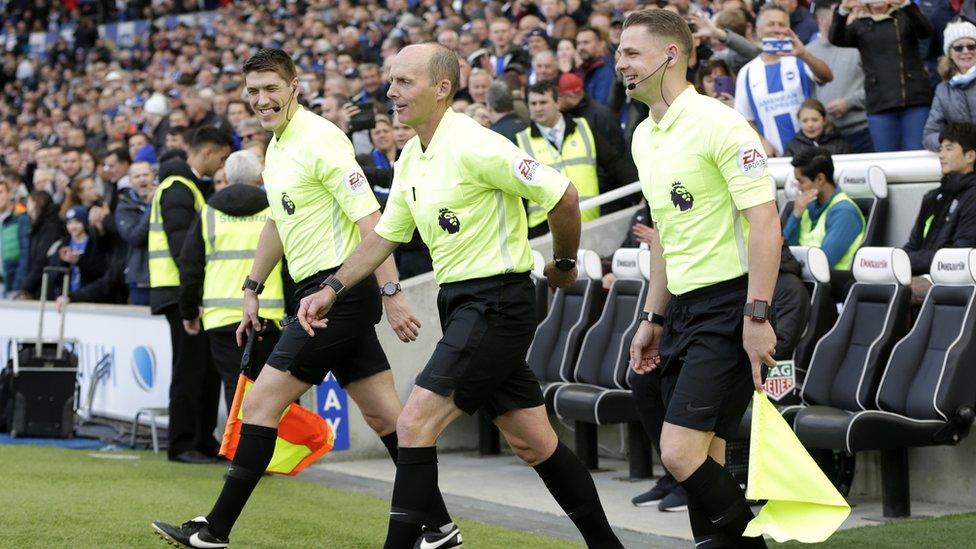
The Premier League season has kicked off and there have been some big changes to the rules.
The Premier League - also known as the top-flight of English football - started in 1992, so the new 2019-20 season will be the 28th campaign.
Manchester City are the defending champions and will be hoping for a third title in a row - something that has only been managed twice by rivals Manchester United.
While the biggest difference compared to last season is the arrival of three newly promoted teams - Norwich City, Sheffield United and Aston Villa - there are lots of brand new rules that players, referees and coaches are going to have to get their heads around before the first kick-off on the 9 August.
This Premier League season will be the first to have a mid-season break. It will also be the first Premier League season to use video assistant referees - better known as VAR. There are also changes to the rules regarding penalties, handballs and substitutions.
Read on to find out more about how these changes are going to affect the beautiful game.
Mid-season player break
A mid-season break is something that lots of leagues in Europe do already.
It's been talked about in England for a long time because some people say it would help the English national team. However, others haven't been as keen on the idea because it's traditional to have lots of games over the Christmas period.
But if you're a fan of Boxing Day fixtures, fear not - the new Premier League mid-season break will be in February.
It means the league will split a round of matches in February over two weekends, with five matches taking place on the weekend of 8 February 2020 and the other five taking place the following weekend.
VAR
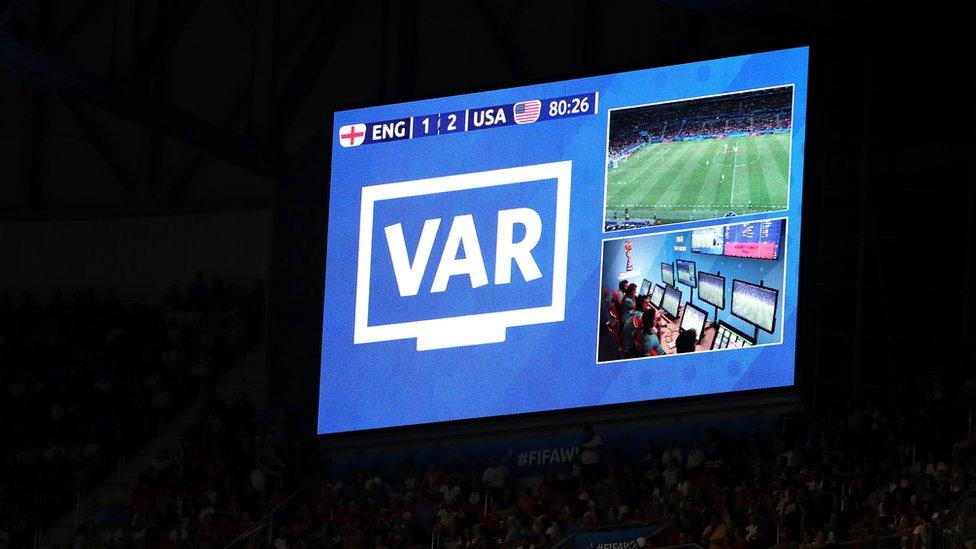
VAR was used during the Women's World Cup
Gone are the simpler times of merely criticising referees for bad decisions. Now, fans can blame several referees for making the wrong call, as VAR is introduced to the Premier League for the first time.
Prepare for both players and managers drawing an imaginary TV screen in the air because it seems this technology is here to stay, having been used at the World Cup, FA Cup, Champions League and Women's World Cup.
The use of VAR in those competitions revealed some problems with the tech, which often disrupts the flow of the game.
In the Premier League, it will only be used for "clear and obvious errors" or "serious missed incidents", such as goals, penalty decisions, direct red card incidents and cases of mistaken identity.
It has also been confirmed that photographs of VAR incidents will be shown on screens in the stadiums and explained over speakers, so fans will know exactly what's happening.
Handball
Deliberate handball is still an offence, but accidental handball can also be a free-kick or penalty.
Even if it's a mistake, if the ball goes into the goal off an attacking player's hand, then a free-kick will be awarded to the opposing team.
The same applies if a player gets the ball using his or her arm and then scores, or creates a goal-scoring opportunity, such as Ellen White's disallowed goal against Sweden in the Women's World Cup third-place play-off.
WATCH: England 'equaliser' ruled out by VAR (only available to UK users)
It's also handball if a player's arm is above their shoulders or if their arms have made their body unnaturally bigger.
Controversially, that means that even if a player has their hands behind their back, if they are judged to have made their body bigger, a penalty or free-kick will still be awarded.
A handball will not be a free-kick or penalty if the ball is knocked onto a hand accidently by another player, or if a player's arm or hand is close to their body and has not made their body unnaturally bigger. A handball also won't be given if a player falls over and the ball strikes their arm.
Free-kicks
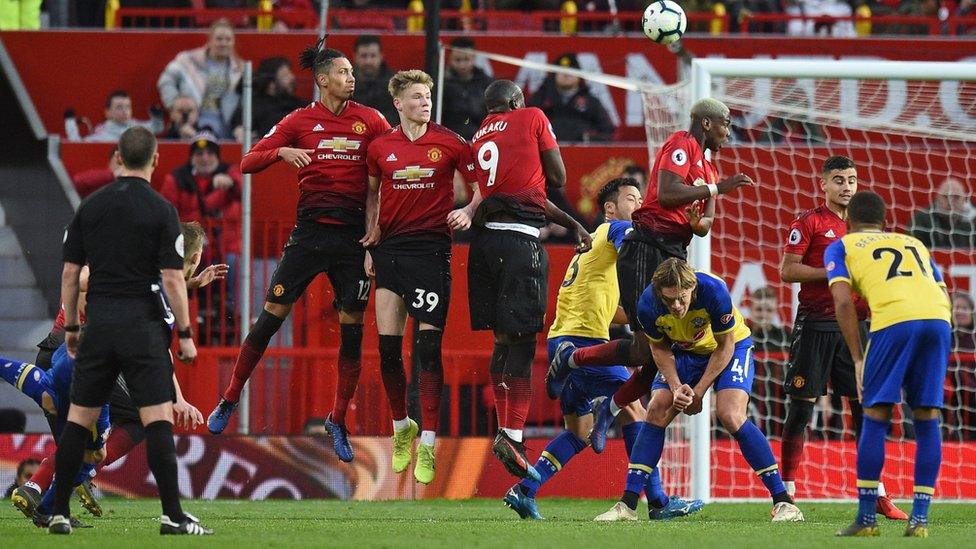
Defensive walls during free-kicks won't look like this anymore, because of a change to the rules
Defending free-kicks in the Premier League had started to get a bit messy, with players from both teams scrapping for a position within the wall.
Well, now all that's changed. When there are three or more players in a wall, no players from the opposite team can get amongst it, distract players or open up a gap for their team-mate to shoot through.
Opponents will now have to be at least one yard away from the wall.
Another change is that referees can allow quick free-kicks to be taken, even when a yellow card is about to be given. This means attacking teams can pass or shoot quickly if there's a goal-scoring opportunity.
This rule change could mean many more free-kick goals this season.
Goal-kicks
A new goal-kick rule will probably benefit teams like Manchester City or Liverpool, who like to play out from the back.
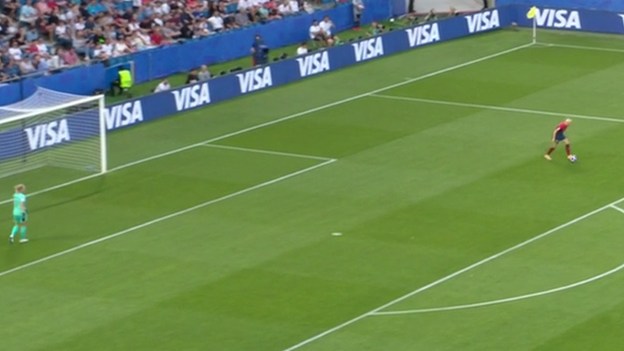
This short Norway goal-kick against England in the Women's World Cup would have been an offence last season
Up until now, no player could be in the box when a goal-kick was taken. Now, the goalkeeper can play the ball to defenders inside the penalty area, but opposition players have to remain outside.
This will mean starting attacks and keeping possession straight away from a goal-kick, rather than the keeper just lumping the ball up-field. Could this mean the end of the long-ball tactic?
The fact that this rule has come into effect, just as six-foot-seven Peter Crouch has retired, is apparently a coincidence.
Penalties
This isn't a new rule as such, but there might be a stricter response to goalkeepers who try to bend it.
Keepers have to remain on the goal line when a penalty is kicked, but if you watch a lot of football you will know that they often like to creep forward as they try to get an advantage.
Now, if a keeper leaves the goal line before the ball is kicked, it should result in a retake. This rule was enforced using VAR in the Women's World Cup and saw Scotland knocked out of the competition.
WATCH: VAR penalty sends Scotland home
Penalties will also not be taken until the goalkeeper has stopped touching the posts or crossbar or even if the frame of the goal is wobbling after being knocked by the goalie.
Substitutions
Footballers can be a bit naughty and will try to bend the rules as much as they can. Ever seen a player getting substituted, only to waste time by taking forever to actually leave the pitch?
Well, players will no longer slowly jog towards the halfway line while being pestered to hurry up, because under the new rules they have to leave the pitch at the nearest point to them.
We will see how this works in grounds where fans are very close to the action, but it does mean that the Premier League might've seen the last of touchline hi-fives between players or cheeky pats from the managers.
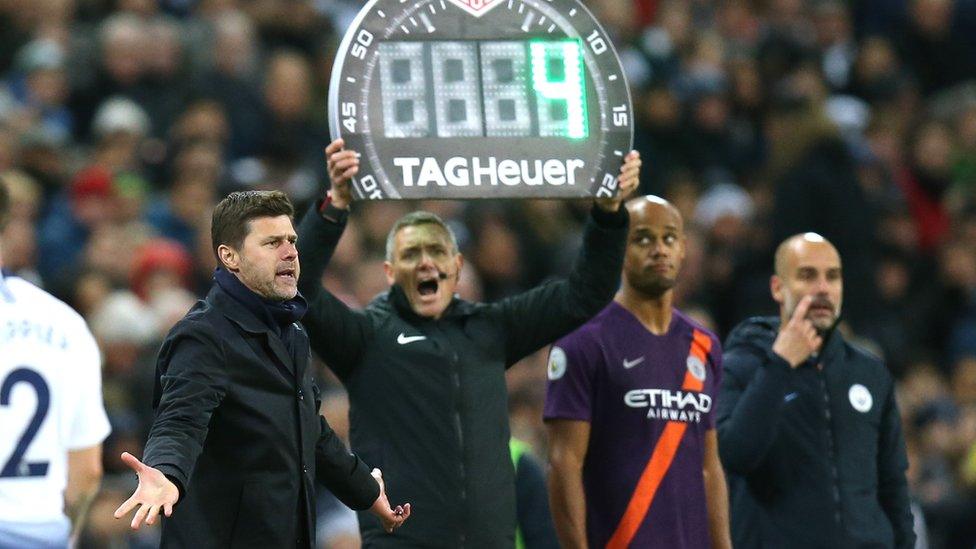
New rules will also see a change to how substitutions work and managers who get cross at the ref could be given red and yellow cards
Cards for coaches
No, this isn't a new rule to make sure managers receive birthday or Christmas cards from their players. Instead, they can receive red or yellow ones from referees.
This rule isn't new for teams in the Football League, but it is for coaches on touchlines in the Premier League this season.
Red cards will be given to managers who kick or throw water bottles, along with those who use offensive, insulting or abusive language. We hope someone tells Jose Mourinho before he gets a new job!
Coin toss
Team captains can now choose which end to attack or if they want to kick off first. Last season they could only choose which goal to attack.
Drop ball
It has to be said that drop balls of the past could get pretty vicious with legs swinging wildly.
Now, instead of a tussle that resembled a shin-kicking competition, the ball will go to the team that played the ball before the referee stopped play.
On many occasions, this rule will be used when a ball accidentally hits the referee, but only if a team gets an advantage from the ref's touch.
However, in the event that the referee accidently knocks the ball into the goal in the penalty area, a goal won't be given and neither will a drop ball.
Instead the ball will be given to the goalkeeper to re-start play.
What do you think about the new rules? And who do you think will win the Premier League this season? Let us know below!
- Published5 August 2019
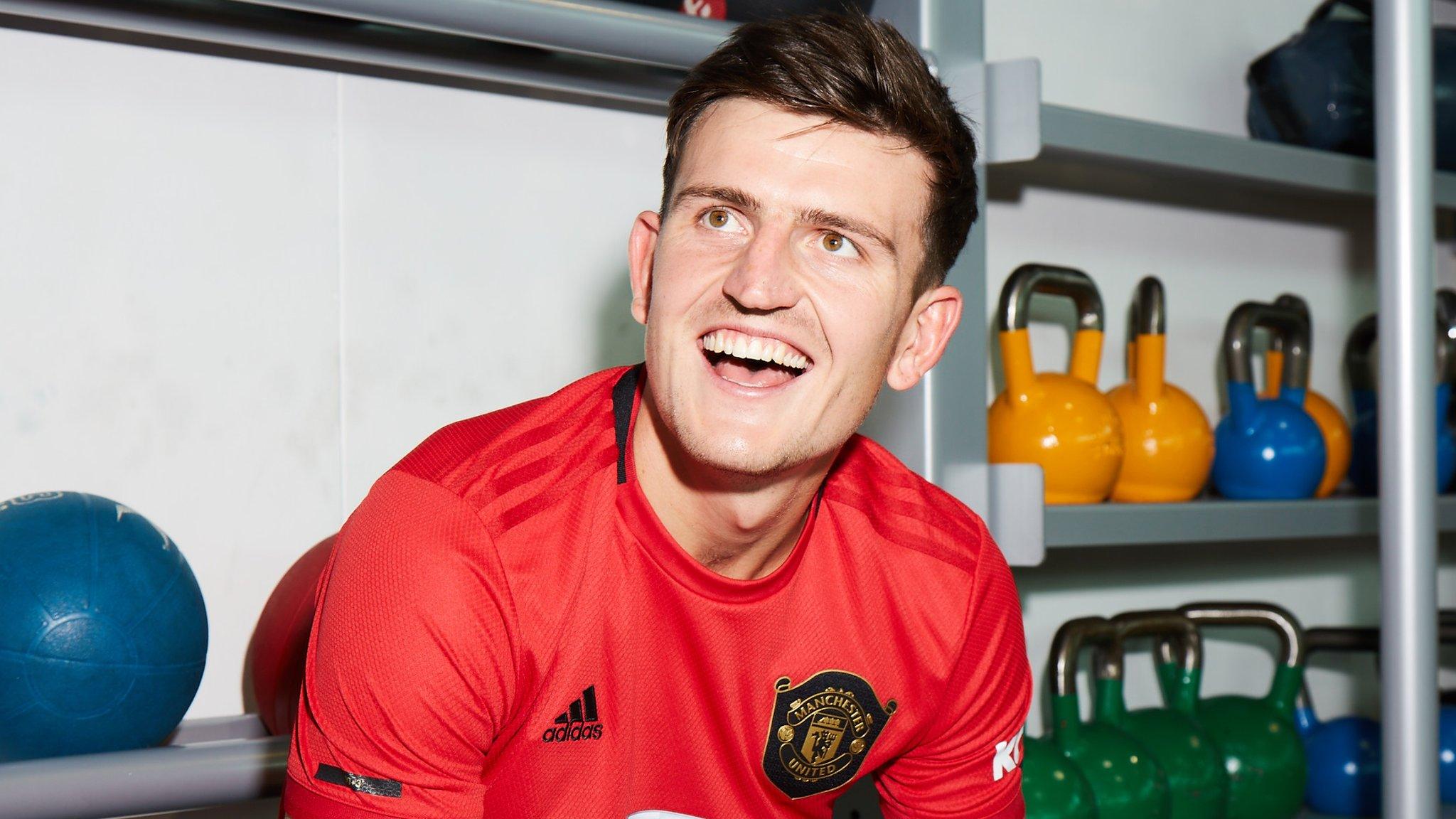
- Published6 August 2019

